Everyone wants to fly a Spitfire right? And I bet, like me, you thought you’d have to know someone who knew someone that had one, with two seats, and was willing to let you go for a ride? Well, as of a few years ago a company called Boultbee Flight Academy based in Goodwood, UK has been allowing people to do just that without having to be friends with people in high places. And yesterday, I was one of their students for the day.
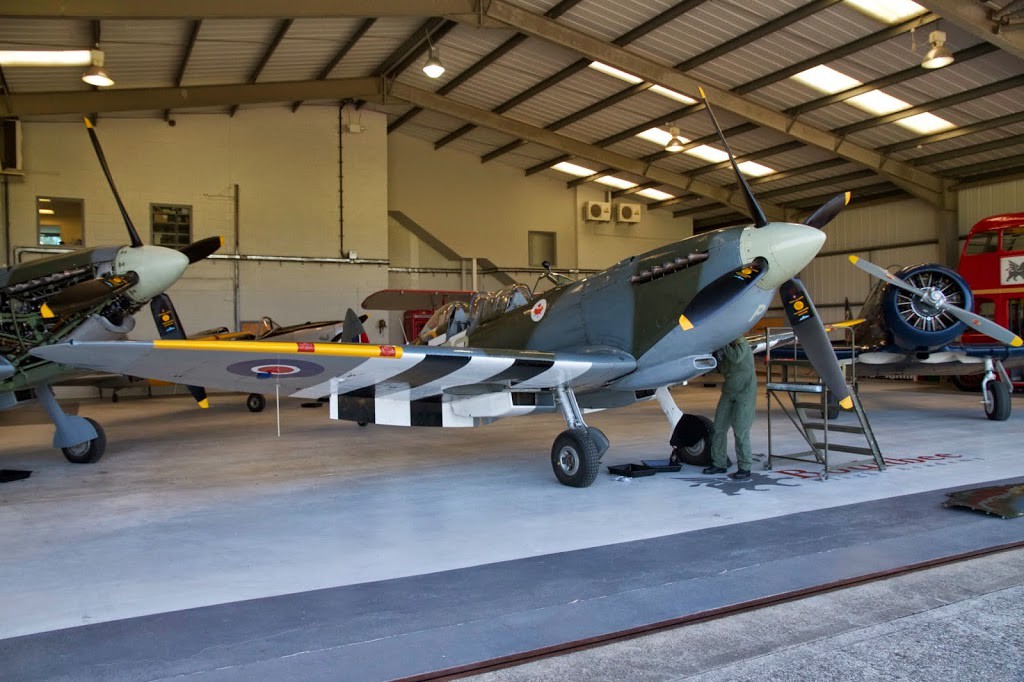
The day started with introductions and with only myself and one other pilot on the day long course, it didn’t take long before we went straight into the safety briefings and some refreshers on complex systems (wobbly props and retractable undercarriage). My father came along for the day and was made most welcome by everyone there and even sat in on some of the briefings.
The schedule for the day was to fly three different aircraft types, starting with the Tiger Moth, then moving onto the Harvard before finally flying the Spitfire. This gave a nice progression and a taste of what the boys would have gone through before the second world war.
Tiger Moth
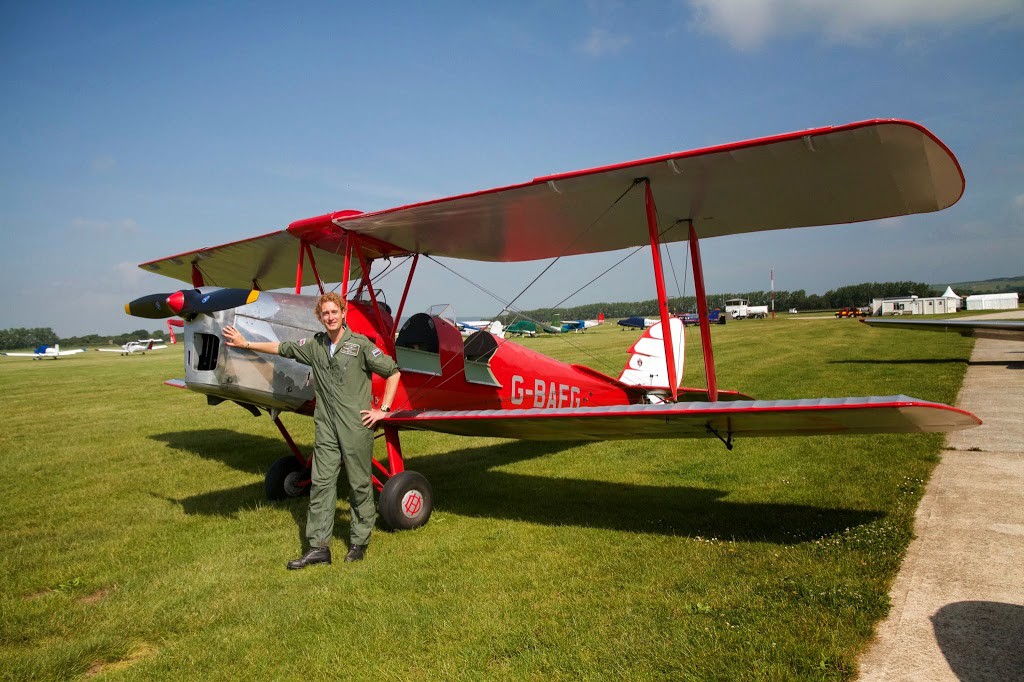
The first aircraft of the day was to be the Tiger Moth. I really lucked out with the weather as it was warm, calm and sunny throughout the day. I’ve never flown in an open cockpit aircraft and was pretty interested to see how it felt. On a warm sunny day, it’s certainly a nice place to be!
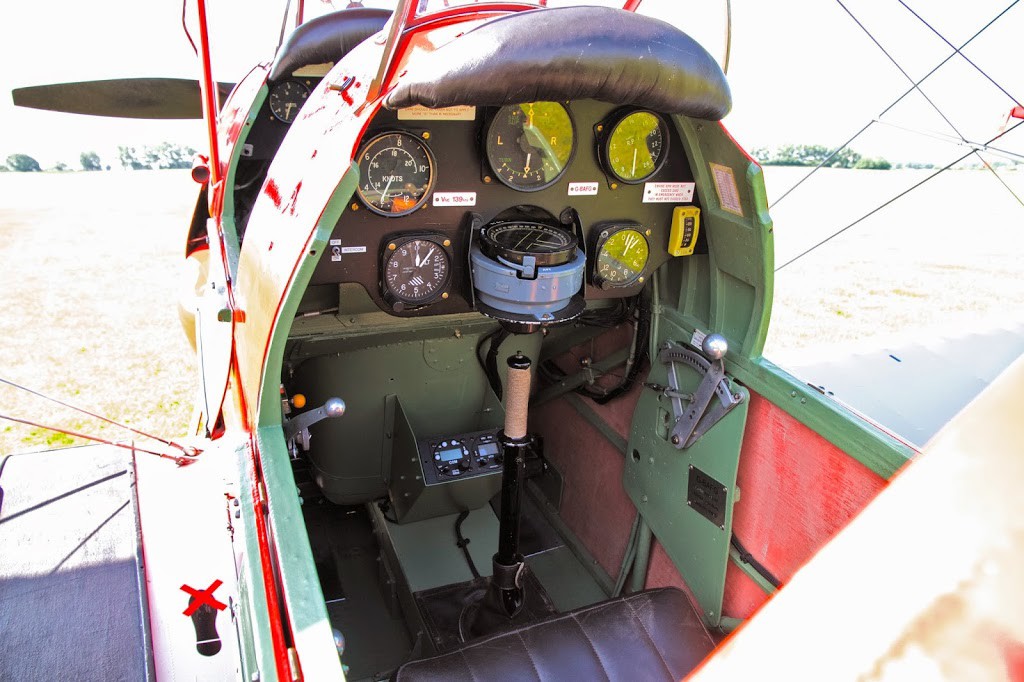
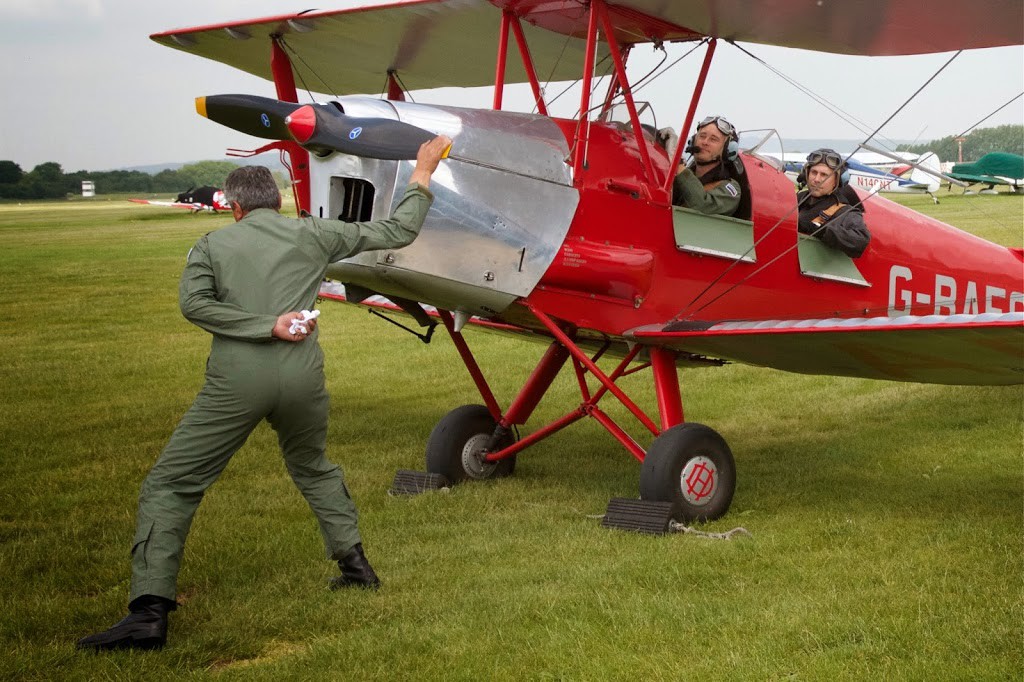
As the Moth isn’t exactly the fastest aircraft in the world, we elected to stay fairly close to Goodwood aerodrome and do some general handling with the old girl. Although a little wallowly in the turns, it was still a delight to fly and you can’t beat those open cockpit views all around. It was nice to know all those hours flying the tailwheel Porter ensured my feet kept the dainty Moth in balance too.
Now, I have two confessions to make. Firstly, I’ve never spun an aircraft and secondly G’s make me rather nauseous. Because of that, I’ve always been rather put off the idea of spinning which after quite a few years in the sky is a bit shameful really. The Moth was an ideal aircraft to give it a go in however and I didn’t want to miss out on the opportunity. Whilst I can’t really say I enjoyed spinning, it was great to have some genuine experience of it and how to recover from it properly. It also allayed a some fears I had previously held. To anyone who’s not tried it, give it a go!
General handling over, we headed back to the circuit for a few touch and goes. I somehow managed to grease the first landing (not bad after two months not flying!). Suitably full of confidence I bounced the next two rather well; first due to flaring a bit to high and the second due to a little too much speed on touchdown. Thankfully the final landing was acceptable but none lived up to that first greaser, as is always the way!
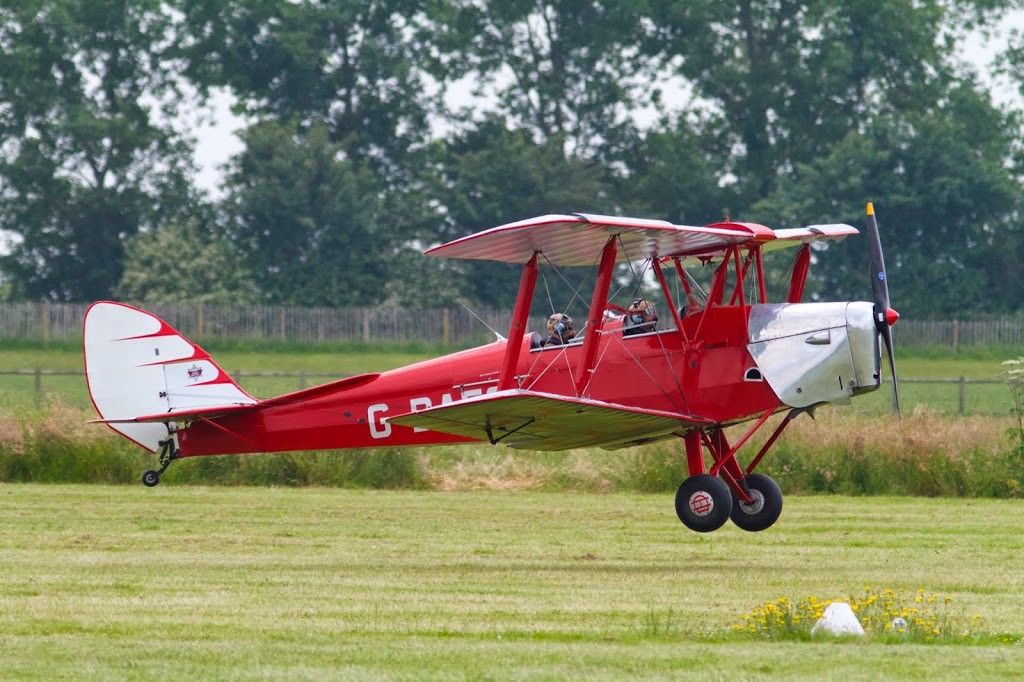
Harvard (Texan) T-6
I love the sound of a big radial. So to get to fly a Harvard was something of a treat I have to say. The noise from inside wasn’t actually as loud as you hear from the outside as you can’t hear those prop-tips from inside, just the wonderful multi-cylinder rumble from that Wasp engine.
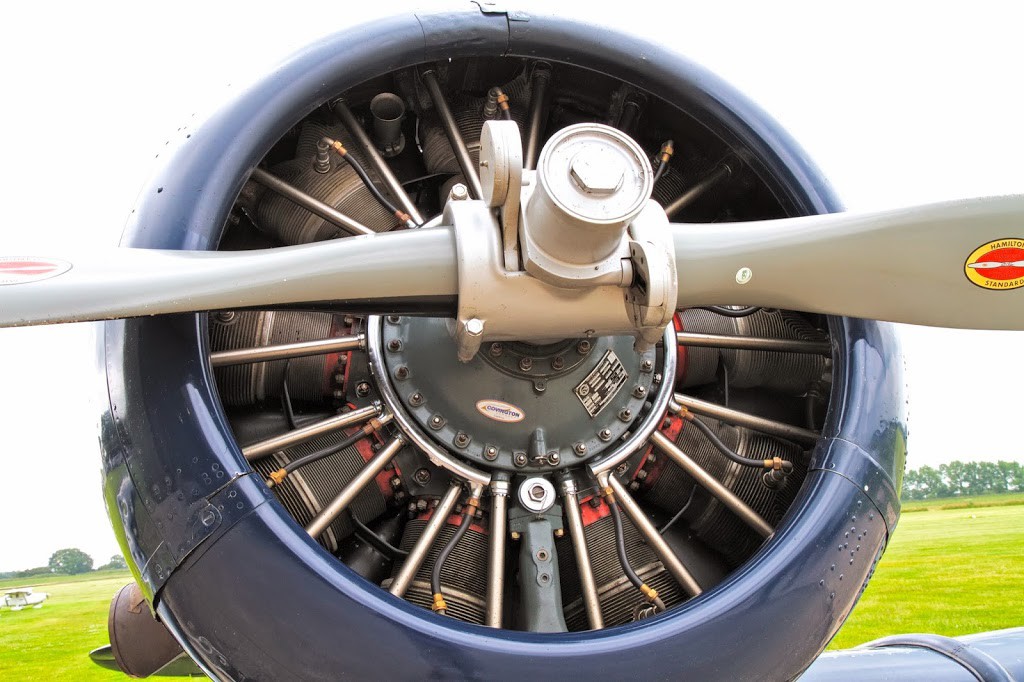
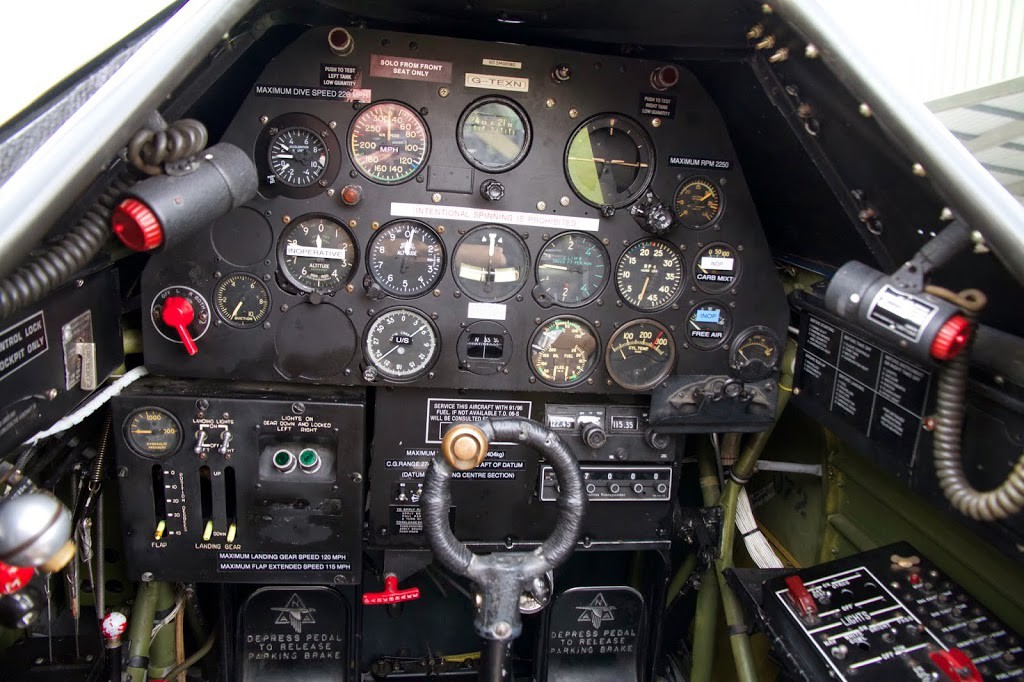
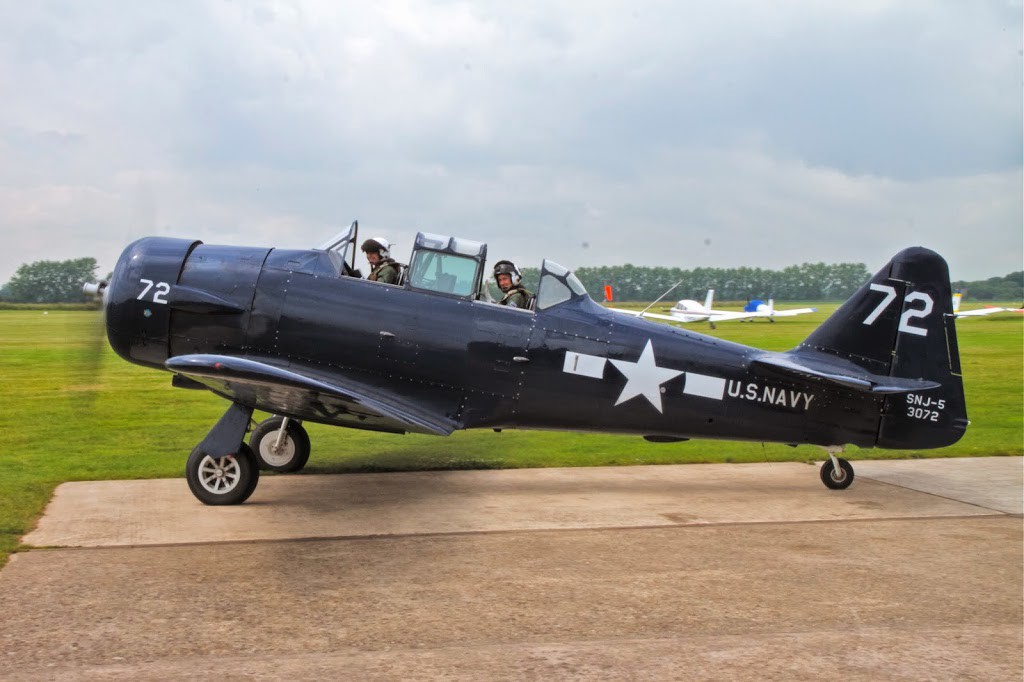
The Harvard felt much more familiar to me than the Tiger Moth. It’s a similar size and power to the Porter I’m used to, abet quite a bit faster and nosier. As we could go faster, we flew down to the south coast to have a bit of a play. My instructor, Sam, was keen for me to try some accelerated stalls as the Harvard has some rather interesting characteristics.
So he reduced the power a bit and put the aircraft into a steep, climbing left turn until we got to the stall. At this point, the right wing stalled and the aircraft abruptly turned to the right and stalled whilst continuing to bank to the right. Recovery was simply a case of easing the pressure of the stick, levelling the wings and pulling out of the dive whilst reducing power. I’ve never seen an aircraft behave like that before!
I then had a go, firstly in a left turn and then in a right turn. The later caused the right wing to stall even more and basically put us in a spiral descent to the right. Standard recovery and one very surprised me! Apparently this is just one of the many quirks of flying the Harvard. Amazing stuff!
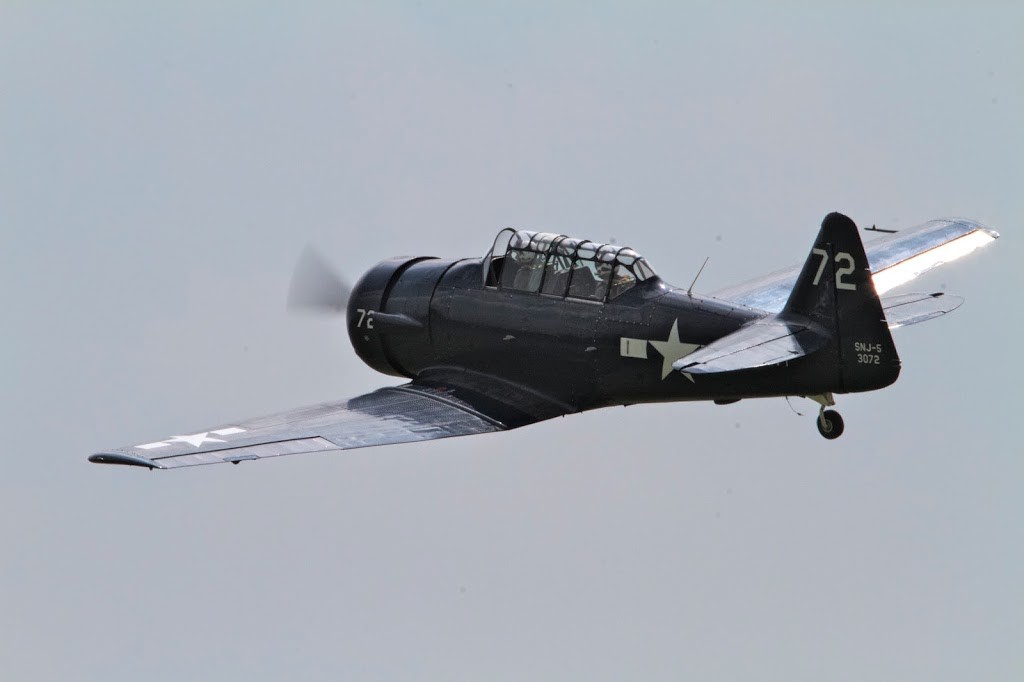
As there’s very limited forward visibility in the back of a Harvard, my instructor did both the initial take-off and the landing back into Goodwood. Time was certainly flying by and next up would be the Spitfire after a spot of lunch.
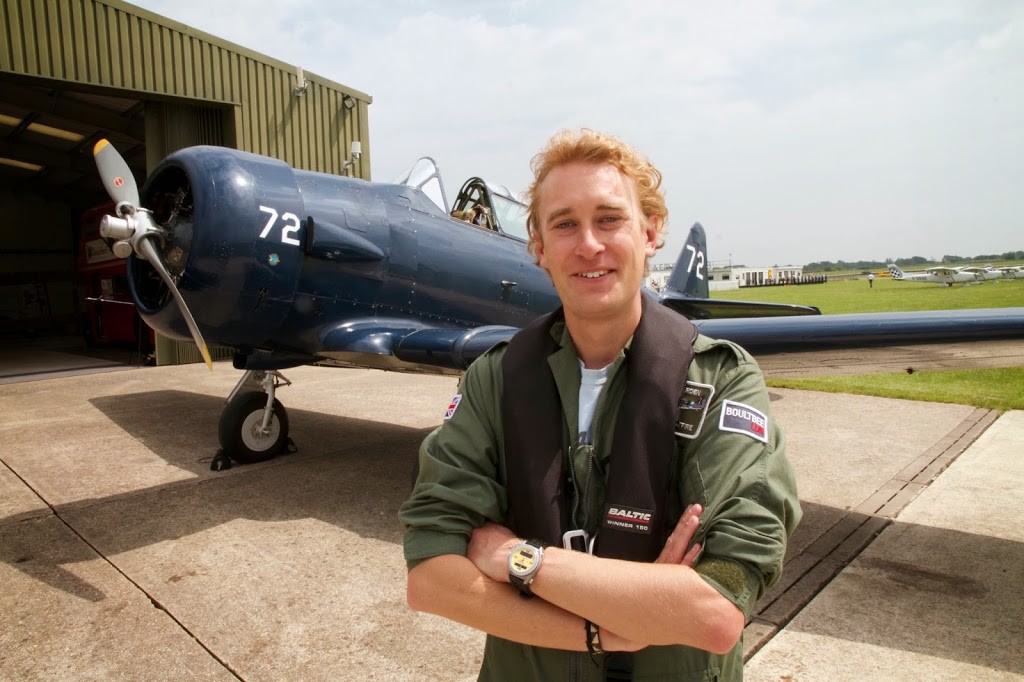
Spitfire Mk IX
And so to the Spitfire. With an aircraft held in such high esteem as this, I was pretty nervous it might not live up my expectations. The cockpit is quite a bit tighter than the Harvard’s but still fitted me nicely. I guess they were originally designed for young, British pilots to slip into so if you have broad shoulders I suspect you’d struggle a bit.
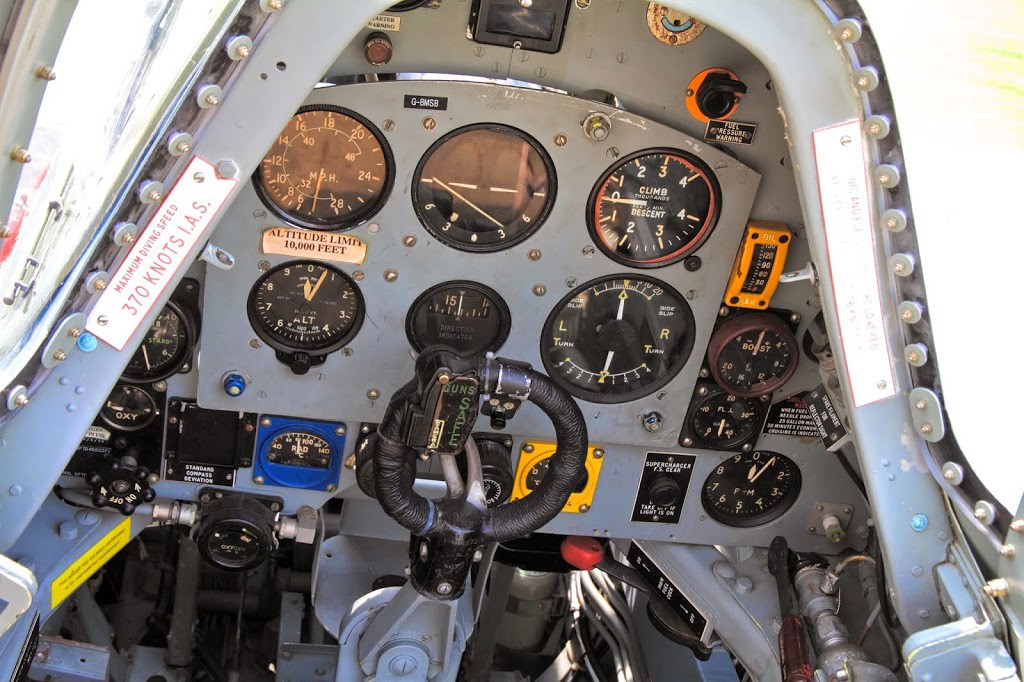
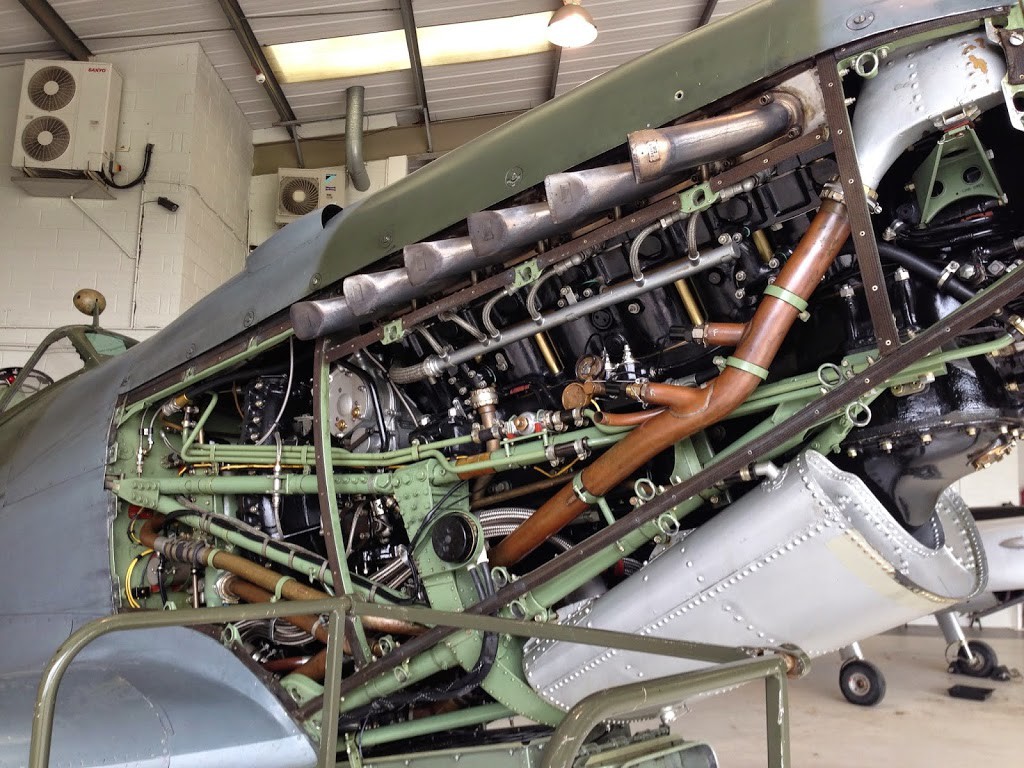
The normal Spitfire Boultbee use was out of action following a sheared starter motor pin than necessitates removing the entire engine to fix (sounds like an Italian car maintenance procedure!). Luckily two weeks prior to my arrival, they had acquired a second two seat Spitfire. Unlike their usual one, this Spitfire had actually seen action in the war having shot down a 109 only two days into it’s service life. Pretty cool history which only added to my expectations!
As much as I love having the PT-6 turboprop up front in the Porter, nothing and I mean nothing, compares to the sound of a big multi-piston engine. And they don’t come much bigger than a V12, 27 litre Rolls Royce Merlin. What a noise! I was almost welling up as we taxied out with everyone waving and taking photos. There’s something magical about that noise that makes everyone stop whatever they’re doing and just look and listen towards where it’s coming from.
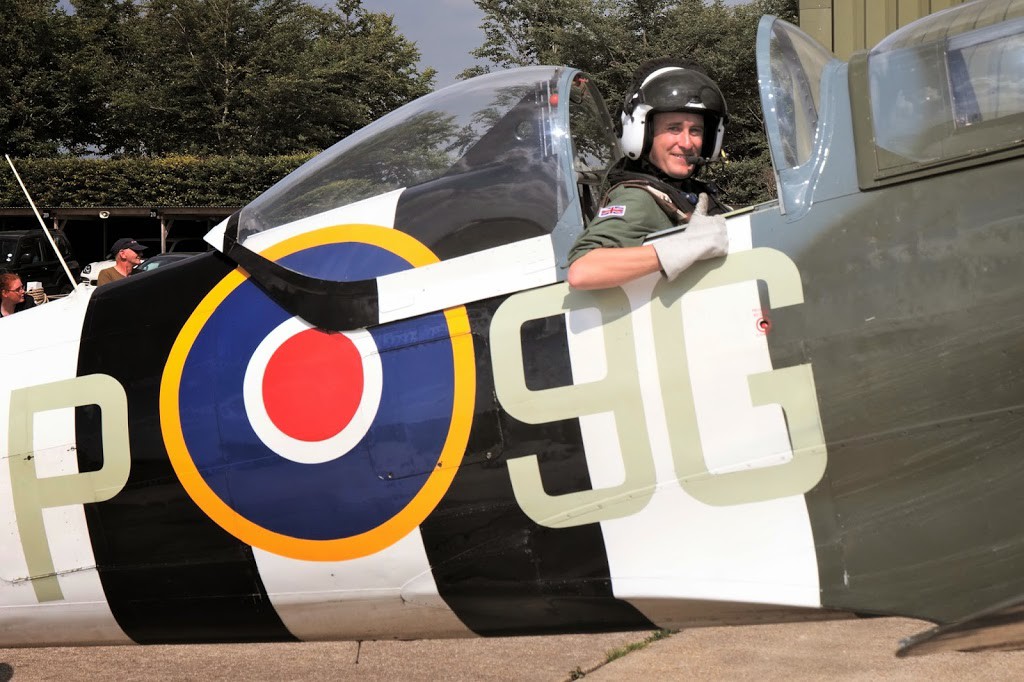
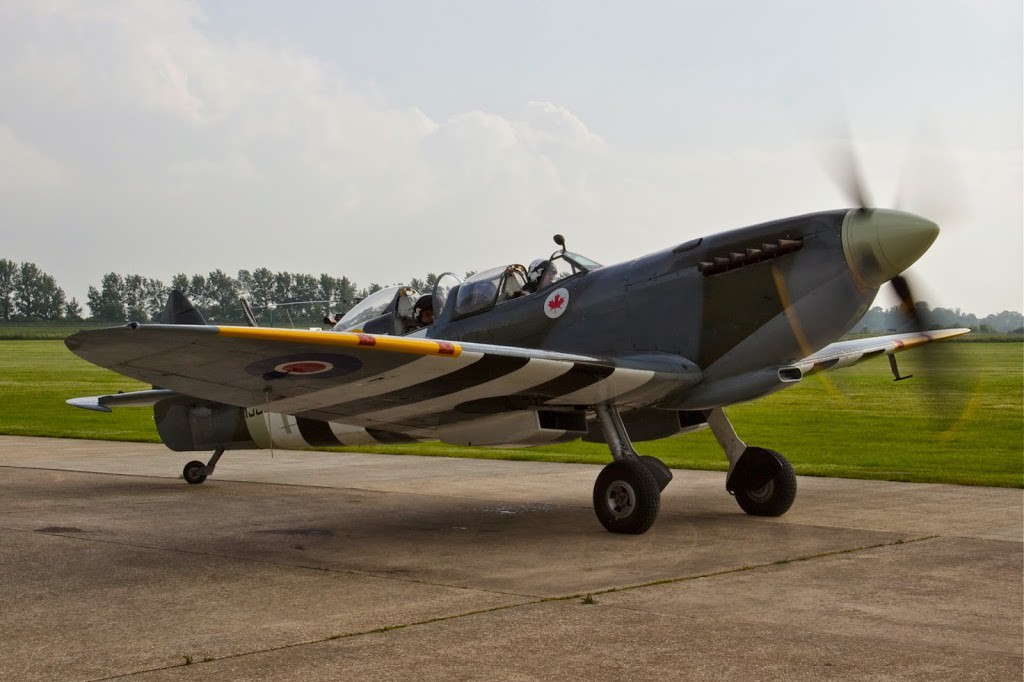
The take-off and departure were again handled by my instructor, Willy, due to the limited visibility in the back (and the fact I have zero hours on such a machine!). But once in the air, she was all mine to play with.
The plan was to fly down to the Isle of Wight (a mere six minutes from Goodwood with a Spitfire) as I have a number of friends there who were waiting for us on the green on the Cowes seafront. Along the way I got a good feel for the controls and just how responsive they are. I decelerated down to 100mph and then back up to 250mph+ and the controls barely loaded up with the increased speed which made her a delight to fly. I can see why the war time pilots must have loved the Spitfire.
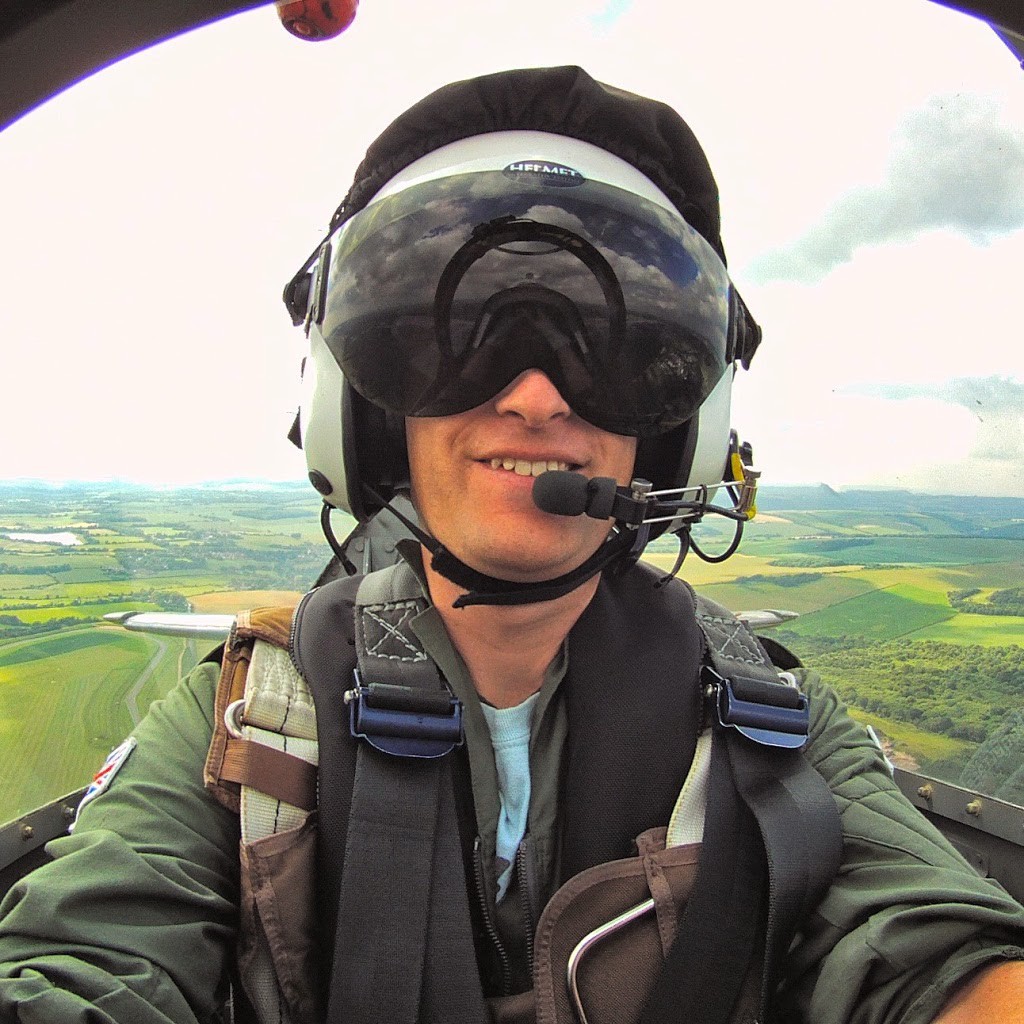
Once at Cowes we dropped down to 500ft and gave everyone on the green a nice little wing-over and back along the other way before heading back inland for a spot of cloud surfing. I’ve always enjoyed skimming the tops of clouds and flirting with the edges of build-ups. And with a Spitfire it really was a dream fulfilled. The Porter’s going to feel very slow once I get back to it!
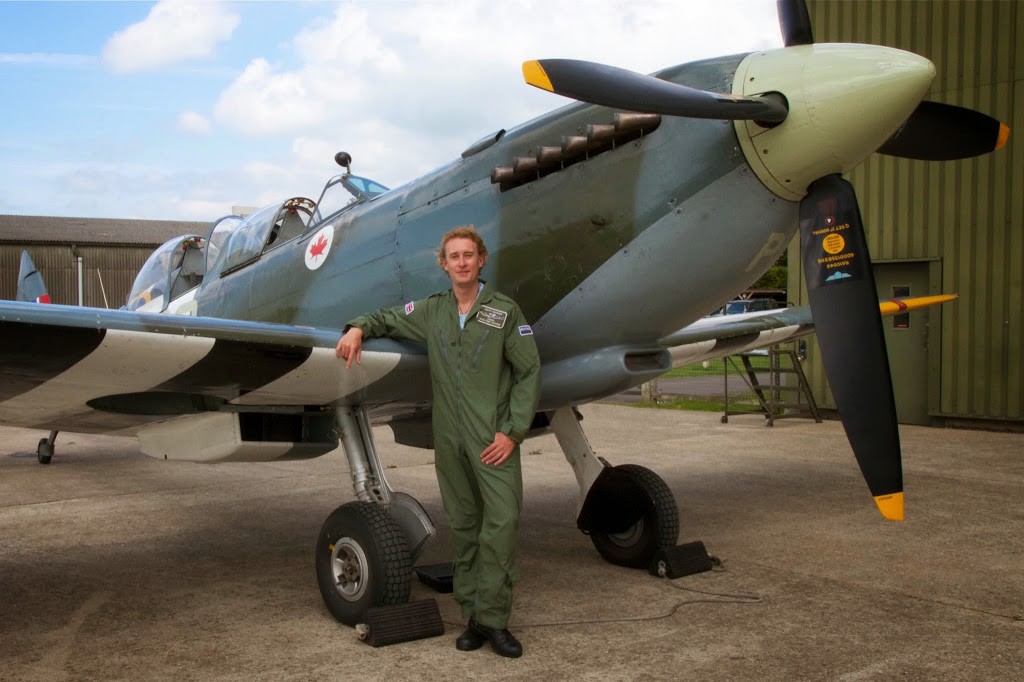
With my allocated time over all to quickly, it was time to head back to Goodwood for the last landing of the day which Willy did beautifully as expected. The approach was certainly a bit faster than I’m used to and she’s certainly not a STOL machine but what a lovely old girl to fly and what an amazing day!
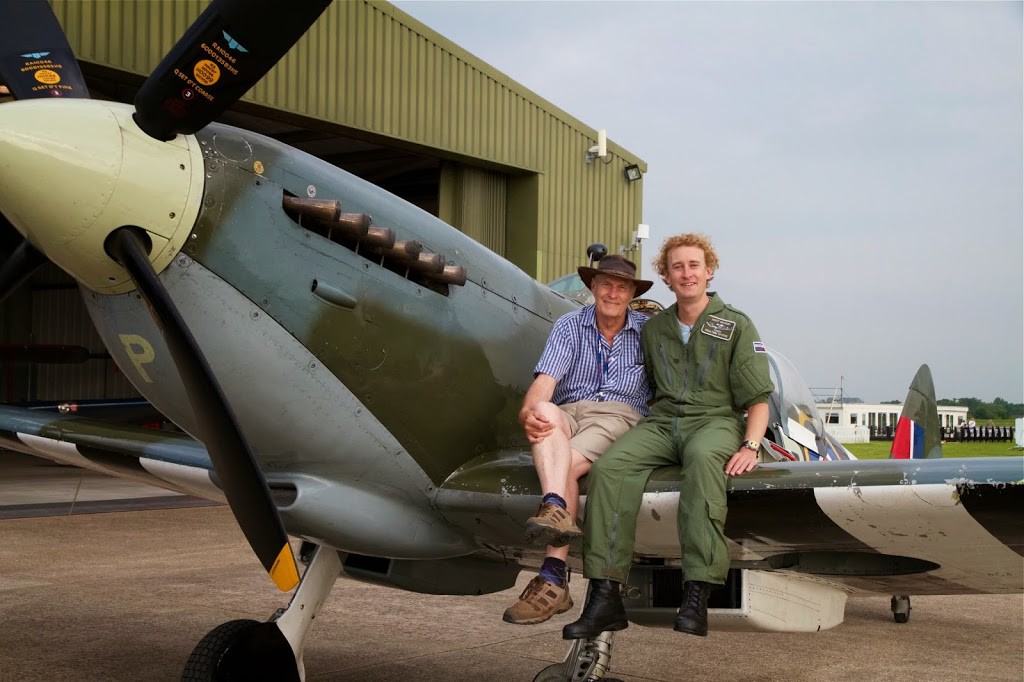
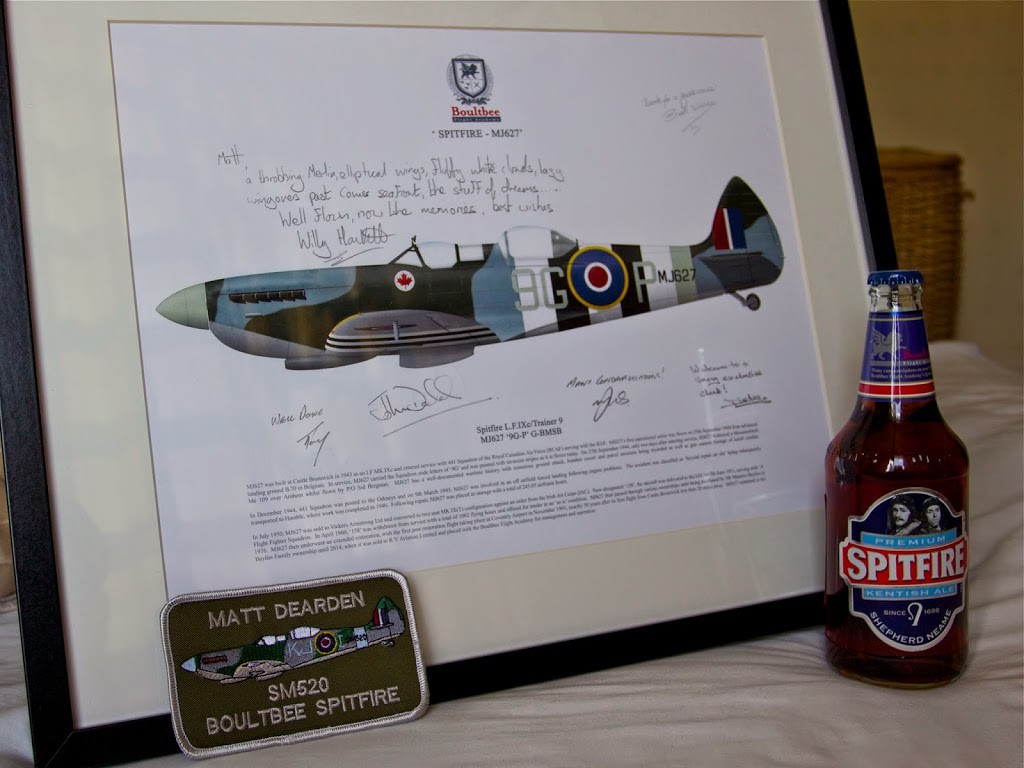
Many thanks to everyone at the Boultbee Flight Academy and especially my two instructors Sam Whatmough and Willy Hackett. A really great bunch of passionate people who made mine and my father’s day very special and one that’ll be with me for the rest of my life.
Discover more from Matt Dearden
Subscribe to get the latest posts sent to your email.
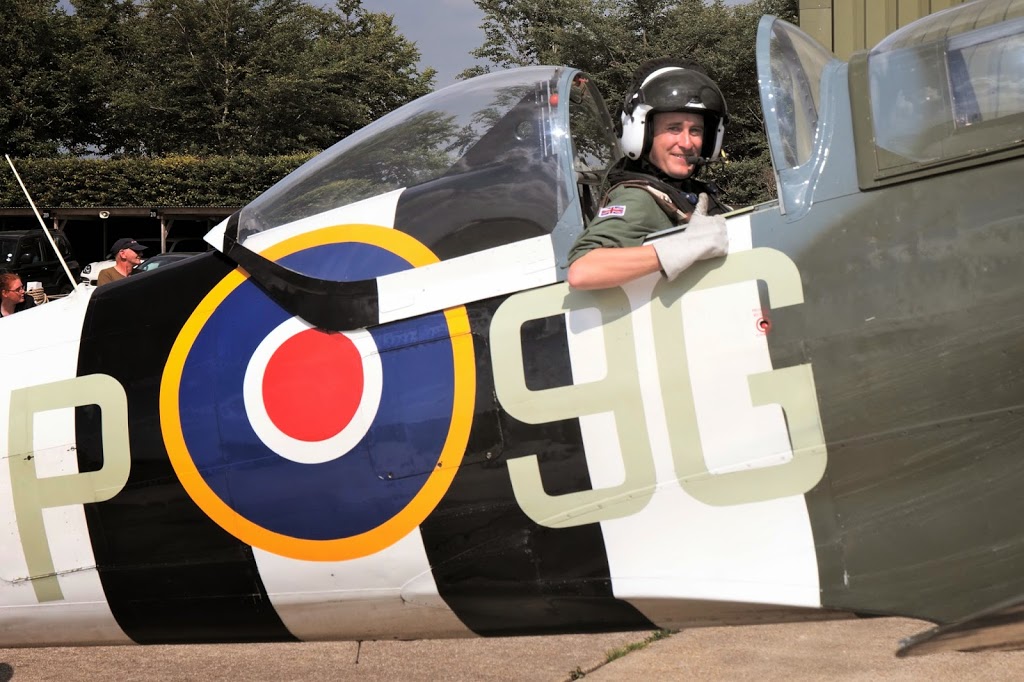
Wow, it must be a great feeling to fly such a machine! If I can ask, how much does it cost for a full day experience up there?
Hi Pawel, full details and costs are on Boultbee Flight Academy’s website which I’ve linked to in the first paragraph of this blog post.
Hi Matt, good to see you back here, I was getting kind of worried…
Thank you for another nice story. It is pleasure as always.
Take care of your self.
Sascha
Wow! I’m so jealous of you right now! To actually ride the planes that were flown by the heroes of 1940 is such a dream come true. From the pictures, I can see that you really had an awesome time in flying those birds. Thank you for sharing your wonderful experience!
Raymond Curry @ Holstein Aviation
Hi matt glad to see you back. i have a question about susi air if you dont mind. how much a new FO earn per month in susi air? basic salary and flight hour?
All here: http://susiairinterview.blogspot.com/2012/09/first-officer-terms-and-conditions.html
It depends on your amount of flight hrs. If i am not mistaken it starts with 750usd and goes up to 1500usd. Hrs are in steps, don’t hang me on it, 500, 1000, 1500.
i am curious, is there any difference between local and expat pilot salary? because i heard in indonesia an expat pilot get lesser than local and i never see any locals flying for susi
Wow 750 per month? And how long the contract is?
Great write up of your day with the war birds!